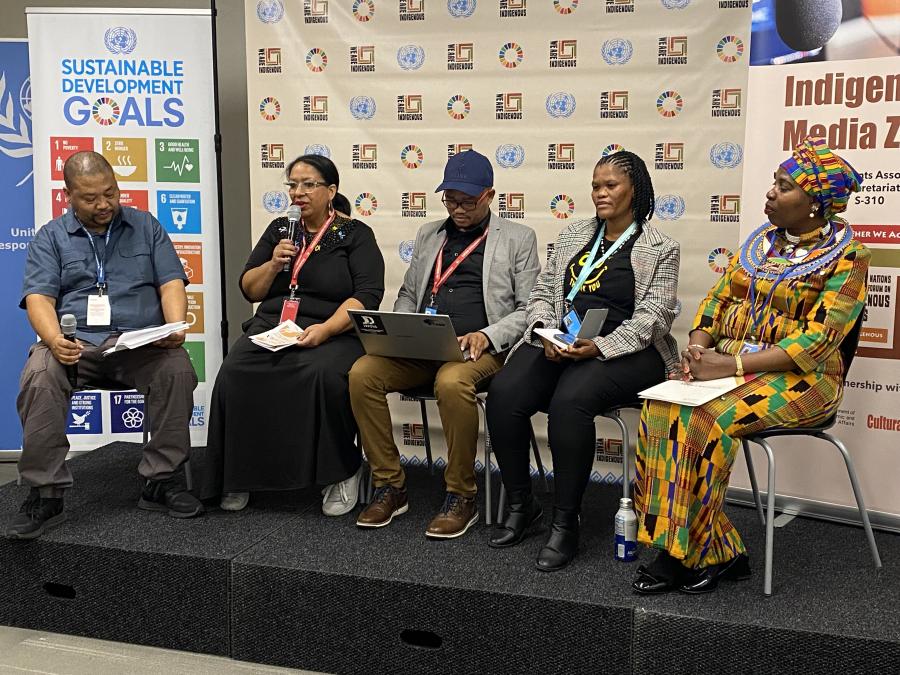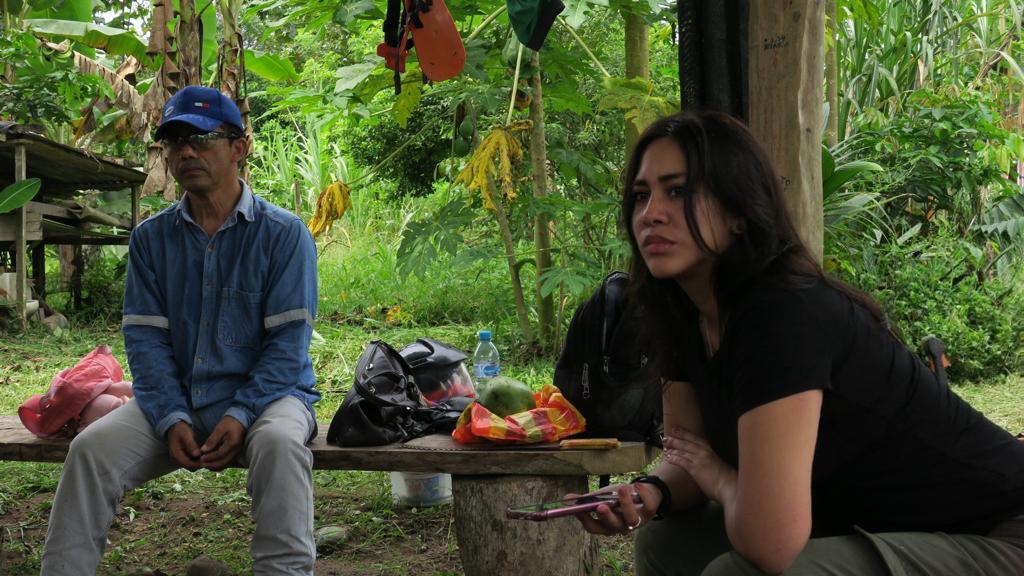
Cultural Survival welcomes Alicia Moncada (Wayuu), who has joined as our new Director of Advocacy and Communications. She brings over 13 years of experience in human rights advocacy, research, and communication, with a focus on Indigenous Peoples' rights, gender justice, and climate justice. Moncada was born in Venezuela, sought refuge in Mexico, and is now based in London, England. Her academic background includes degrees in Law and Women's Rights, with specialized training in International Human Rights Law and International Humanitarian Law. Her professional experience includes researching human rights violations against Indigenous Peoples in the Amazon Basin, serving as a professor at Universidad Central de Venezuela, and working as Research and Media Coordinator at the Foundation for Justice and the Rule of Law, where she focused on migration policies. At Amnesty International, she was a researcher in Economic, Social, Cultural, and Environmental Rights for the Venezuelan section, and later became the first Climate Justice Researcher and Climate Justice Americas Program Officer, leading the organization's climate justice strategy for the Americas.
Shaldon Ferris (Khoi/San), Indigenous Rights Radio Coordinator, spoke with Moncada about her extensive work.
Shaldon Ferris: Please tell us about yourself. How did you come to work in the human rights field?
Alicia Moncada: I used to live in Venezuela until 2019, when I was granted refugee status in Mexico. I grew up in the Venezuelan side of the Wayuu territory. I'm incredibly honored to have had the chance to live with my grandparents, my mother, and my family, to learn to speak my native language, Wayuunaiki, and to learn different skills of our culture that have been very useful in my life. I come from a family of commerce and construction workers; my grandpa was a merchant and a construction worker, and my brother is also a construction worker and a fisherman.
In my youth, I did not know what human rights were. Those topics were disconnected from our everyday reality. My family did not have knowledge about what human rights were. Even though my family is Indigenous, these issues seemed like national politics rather than something fundamental to our lives. As a young woman, my only dream was to become a university professor at the Central University of Venezuela, the country's most prestigious public university. I was able to enter there in 2004 after going through a rigorous and very competitive selection process. I was the first in my mother’s family to earn a degree from a university. In 2009, I joined the Central University of Venezuela Center for Women's Studies, and that was my first real home in understanding human rights, specifically women’s rights. That's where I began building my professional career in human rights. I participated in their ground-breaking diplomas and became the first Indigenous woman to complete their gender diploma. That space became my intellectual and political home.
Through this activism at the university, I became deeply involved in learning, documenting, and helping to create awareness about the case of Sabino Romero, an Indigenous Yukpa activist from the Sierra of Perijá who was assassinated in 2013 by state agents. When I started learning about the Sabino case, Sabino was alive, struggling, and working towards demarcating their territories. That's when I truly understood our rights as Indigenous Peoples. The struggle of Sabino opened my eyes to what our rights really meant.
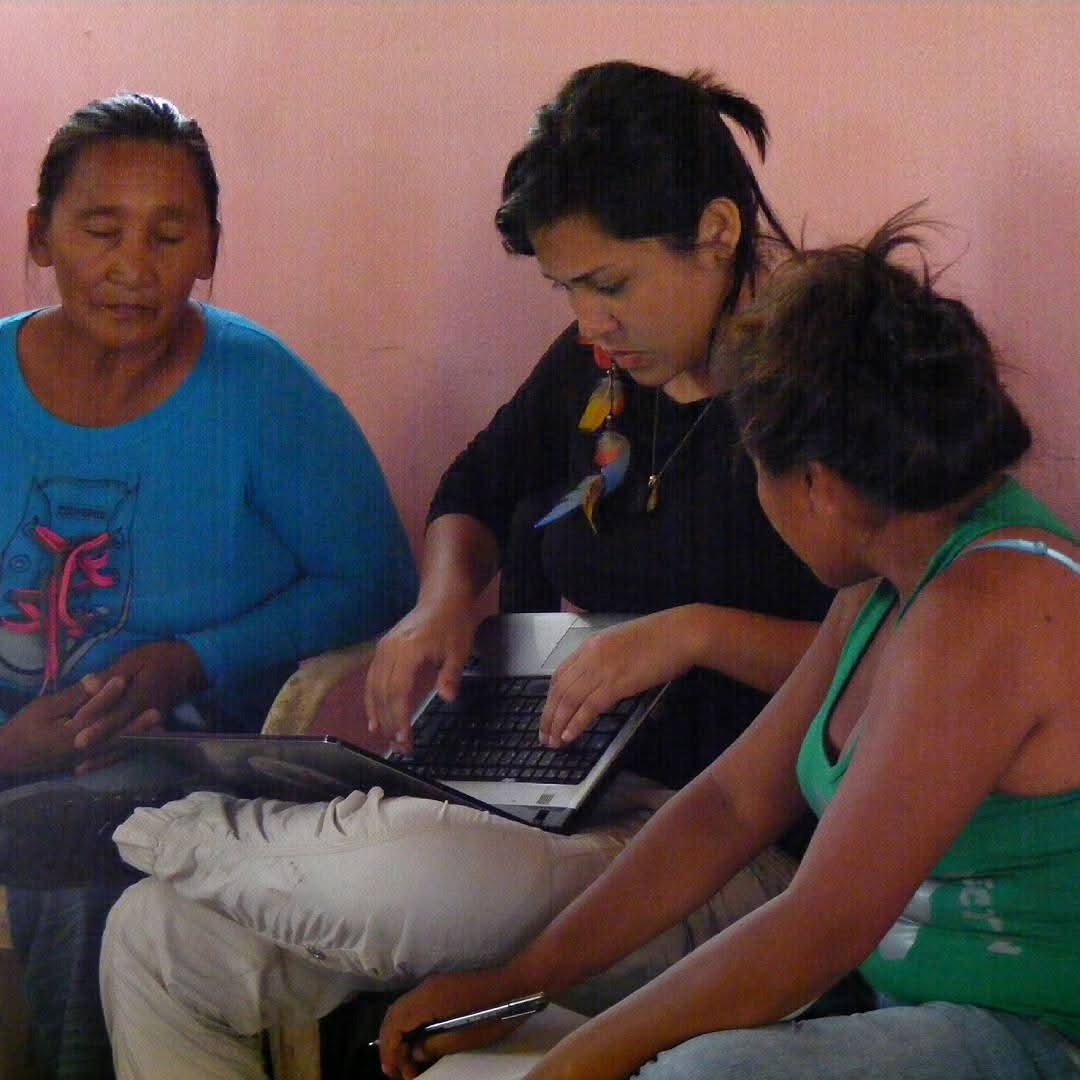
SF: You have years of experience in transforming narratives and public policies to advance the rights of Indigenous Peoples. Could you discuss your research in the Amazon basin, particularly your specialization in gender and climate justice, and the impact of your findings?
AM: I have spent over 13 years documenting violations against Indigenous Peoples, but also migrants and refugees. I began documenting formally as a professional working for the Ombudsman's office in Venezuela in 2011, which is essentially the national system responsible for human rights. I started documenting Indigenous Peoples' rights violations in the Amazon rainforest on the borders with Colombia and Brazil, documenting the impacts of extractivism on Indigenous territories that are being ravaged. I used to work alongside Amazonian Indigenous Women's Organizations. I worked alongside Indigenous organizations that were suffering the impacts of illegal mining in their territories. That was pivotal for me to understand the diversity of violations that Indigenous Peoples face.
I spent a total of seven years working on projects throughout the entire Amazon Basin, excluding Bolivia. I had the chance to experience the realities of Indigenous people in Brazil, as well as in Venezuela, Colombia, Ecuador, and Peru, documenting rights violations. My work at Amazon was pivotal for me. I spent those years doing academic research and advocacy reports.
I learned a great deal about drafting advocacy reports when I worked at the Venezuelan section of Amnesty International in 2017. That's when I started working in the NGO sector and began to understand the difference between the reports we created in Indigenous organizations to document rights violations and the documents we produced as academics, the distinction between those outputs and the ones that can be created for international advocacy. After that, I worked for the Foundation for Justice based in Mexico and the Americas Regional Office of Amnesty International. I also conducted the documentation of violations against migrants, Indigenous people, and Amazonian communities in Ecuador, documenting rights related to climate change. Over thirteen years, I have accumulated significant field research experience.
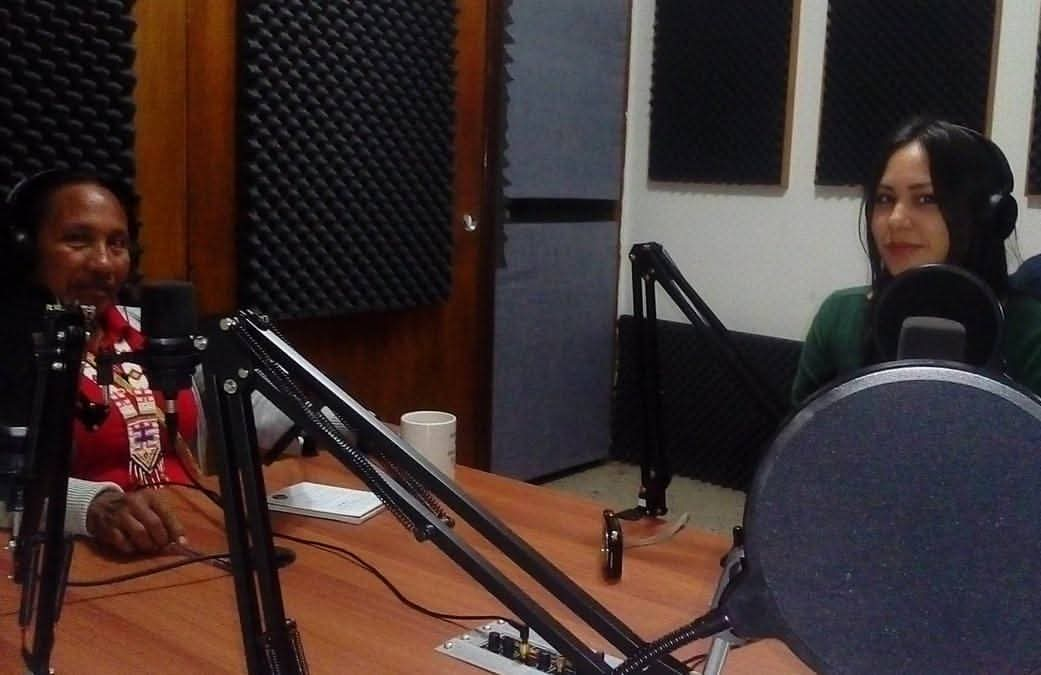
SF: How did your work with Indígena Radio Guarura consolidate your commitment to community communication in challenging civic spaces?
AM: Radio Guarura was a project that we created with Wainjirawa, an Indigenous organization in Venezuela. Most of the members are Wauyuu, but also my dear friend Juan Carlos La Rosa (Caquetí) and Jose Quintero Weir (Añú), who is a very wise Elder, were vital members of this organization. We created that radio program for a pirate or alternative radio station called Humano Derecho Radio. The Venezuelan civic space has been limited, and leaders have been targeted and criminalized for some years. It's a challenging context to work in. This radio started because of the lack of spaces to share what was going on in Venezuela. Between 2017 and 2019, we initiated this project. Working in a context where the state actively restricts Indigenous voices and human rights defenders' voices basically told me that communication is resistance. It's remarkable that Radio Guarura continues its work despite Venezuela's deeply hostile environment for freedom of expression, even now.
Through community radio, we aim to keep the narrative alive and maintain connections with vulnerable territories that were deeply affected by Venezuela's humanitarian emergency. Radio Guarura proved to us that even in the most restrictive spaces, Indigenous people find ways to speak truth to power. I remember one program that generated significant backlash for us in terms of governmental surveillance related to the Kumarakapay Massacre in 2019, which I personally documented in a situation, among others related to my work as a human rights defender, that eventually contributed to my exile from Venezuela and to seeking refuge in Mexico. My conviction is that strategic communication rooted in community priorities is absolutely non-negotiable for our struggle as Indigenous Peoples and for our rights.
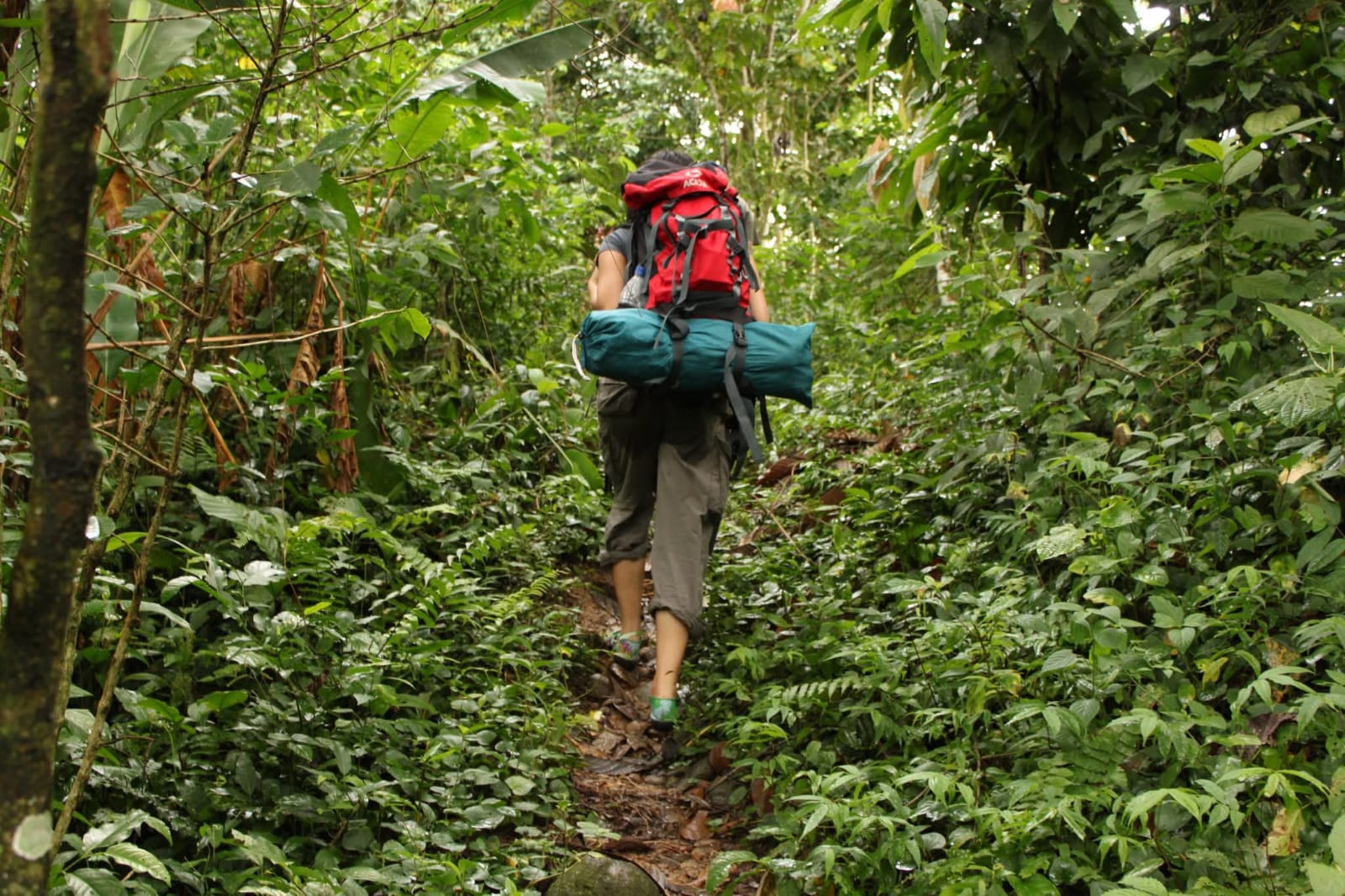
SF: What were some key insights from your research on the impact of migration policies on human rights during your time at the Foundation for Justice and the Rule of Law?
AM: The Foundation for the Justice and the Rule of Law is a regional organization that works with strategic litigation to protect migrants' and refugee rights. I was their head of research and communication. The research that we conducted unveiled how forced migration policies like Quedate en México (Remain in Mexico) criminalized refugees and people seeking asylum, particularly Indigenous and Afrodescendant communities that were escaping from threats to their lives and numerous abuses and violations of human rights in their countries. This policy was implemented in 2019, and the militarization of migration policy intensified under the López Obrador administration with the creation of the National Guard and its deployment in enforcing these policies. This created a cascade of human rights violations, which I documented through various outputs, including reports published in 2019-2022, like “Under the boot. Militarization of the migratory policy in Mexico”. We documented the real human impacts of these policies.
We are seeing these policies in their extreme in the United States: families separated, Indigenous and Afrodescendent migrants facing violence and exploitation. Cruel racism and xenophobia are embedded in these migration policies, like the ones that are documented in Mexico. I have been documenting this since 2019, and I continue to do so today as the problem persists. These policies in Mexico have been fundamentally driven by whatever the U.S. administration demands at any given moment. The Foundation for Justice and the Rule of Law, founded by Ana Lorena Delgadillo, a member of the UN Working Group on Enforced or Involuntary Disappearances, wanted to create awareness and document this violence for litigation on behalf of migrants and asylum seekers in Mexico, Guatemala, El Salvador, and Honduras.
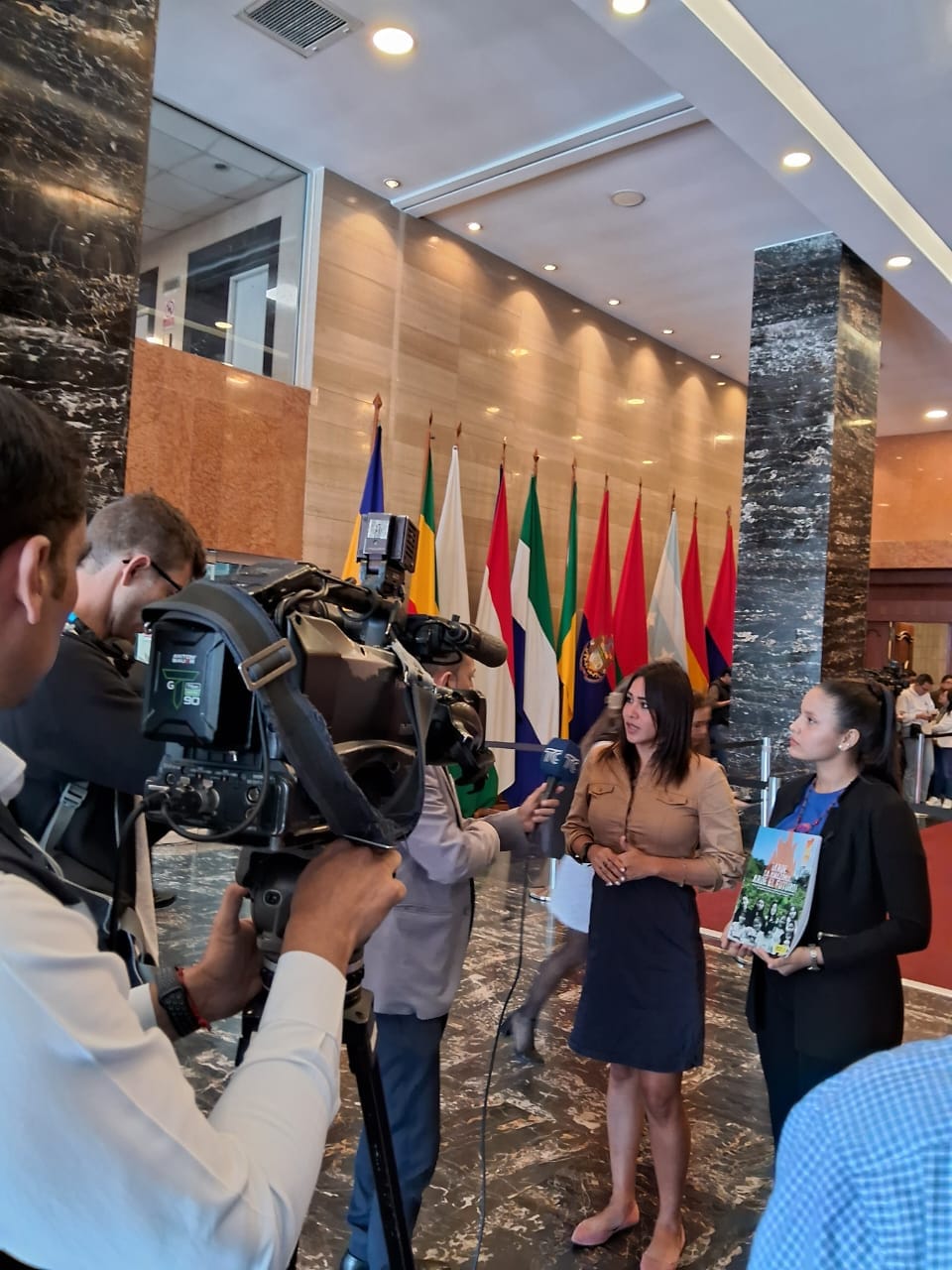
SF: As the first Climate Justice Researcher and Climate Justice Americas Program Officer at Amnesty International, what were the most significant strategies you designed to amplify Indigenous voices in climate justice?
AM: I'm incredibly proud of Amnesty International’s first-ever climate justice strategy for the Americas. I think we did an amazing job trying to position Indigenous rights as foundational to that strategy, rather than peripheral or just positioning Indigenous Peoples as the beneficiaries. I worked alongside Indigenous and Amazonian communities in the Ecuadorian Amazon during my time at Amnesty's America's Regional Office to document violations of human rights related to gas flaring. That is one of the most pernicious practices of the oil industry. I authored one of the reports related to the case of nine girls in the Ecuadorian Amazon who filed an action of protection against gas flaring in their territories. I worked with illustrators to create accessible visual storytelling. We created a comic, a manga, with a style more rooted in K-pop to raise awareness about the case.
We also engaged artists and influencers who are generally committed to environmental justice, particularly in this case, creating outputs in multiple languages. My time at Amnesty was a period of centering Indigenous and youth voices and creativity to develop outputs that resonate globally.
SF: What, or who, are some of your greatest inspirations?
AM: The Indigenous communities with whom I have the honor of accompanying demonstrate their resilience, ancestral wisdom, and unwavering commitment to defending their territories in the most hostile environments. They inspire me every single day. I'm also deeply inspired by Indigenous women activists and leaders who've paved the way and are creating pathways for others like me to step into these spaces with power and purpose. That's the most important thing when you achieve a level of responsibility like ours.
SF: You have said, "The victories we have achieved in international spaces are under constant threat." What are these threats, and how do you plan to address them in your new role as Cultural Survival's Director of Advocacy and Communications?
AM: The threats against human rights right now are real and multifaceted. We are facing authoritarian regimes that criminalize human rights defenders, Indigenous dissent, and Indigenous rights defenders and nature defenders. We are facing shrinking resources for specific spaces for organizations, particularly Indigenous organizations. We are challenged by powerful narratives that minimize our achievements in terms of rights and the importance of human rights. This is a moment where we must be bold and confront power, speaking truth to it. Cultural Survival gives me the platform to put myself in service to counter these threats head-on.
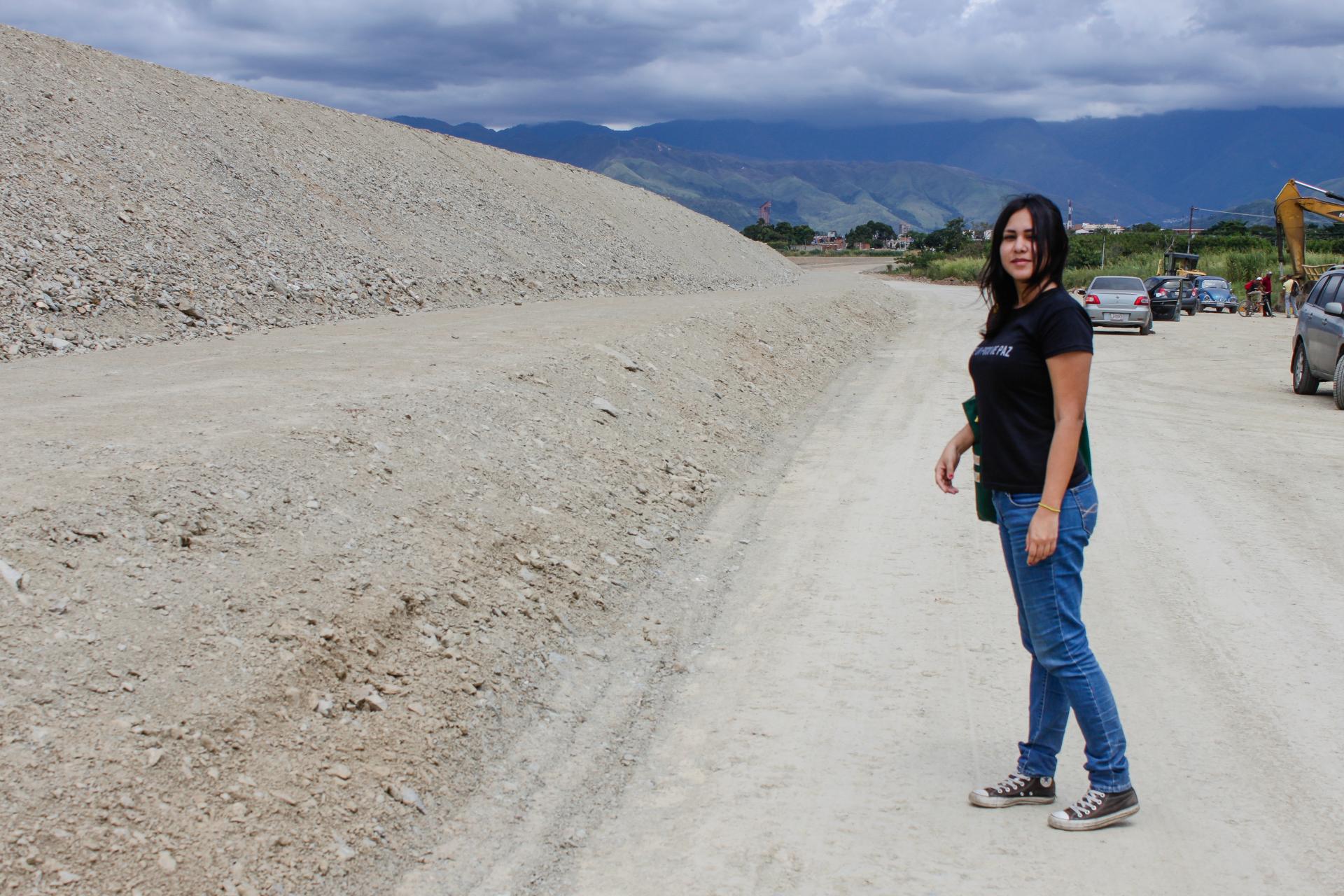
SF: How do you envision strengthening Indigenous leadership in decision-making spaces at Cultural Survival?
AM: In this role, I'm committed to creating a space and strategy that positions Indigenous leadership to document threats and amplify voices from movements, as Cultural Survival has been doing for so long. My contribution will be to ensure that international advocacy centers on and protects Indigenous Peoples as the experts and decision-makers in their own struggles and liberation. This is my core vision. I am committed to ensuring that our advocacy and communications work is never extractivist. It must be, in my opinion, led by, designed by, and benefitting Indigenous communities directly.
I want to create spaces where Indigenous people define their own narrative rather than have it determined by someone else. In every output, every campaign, I'm committed to maintaining the Cultural Survival essence of co-creating these outputs with the communities, not about them. My added value will be utilizing my resources, knowledge, and strategic platforms directly to elevate Indigenous movements and organizations that Cultural Survival supports, as well as those that can benefit from our support, in fighting back against the narratives proliferating against Indigenous Peoples’ rights, Nature, and climate justice, in the world right now. This is how we achieve power, by centering the people facing and suffering the violations.
